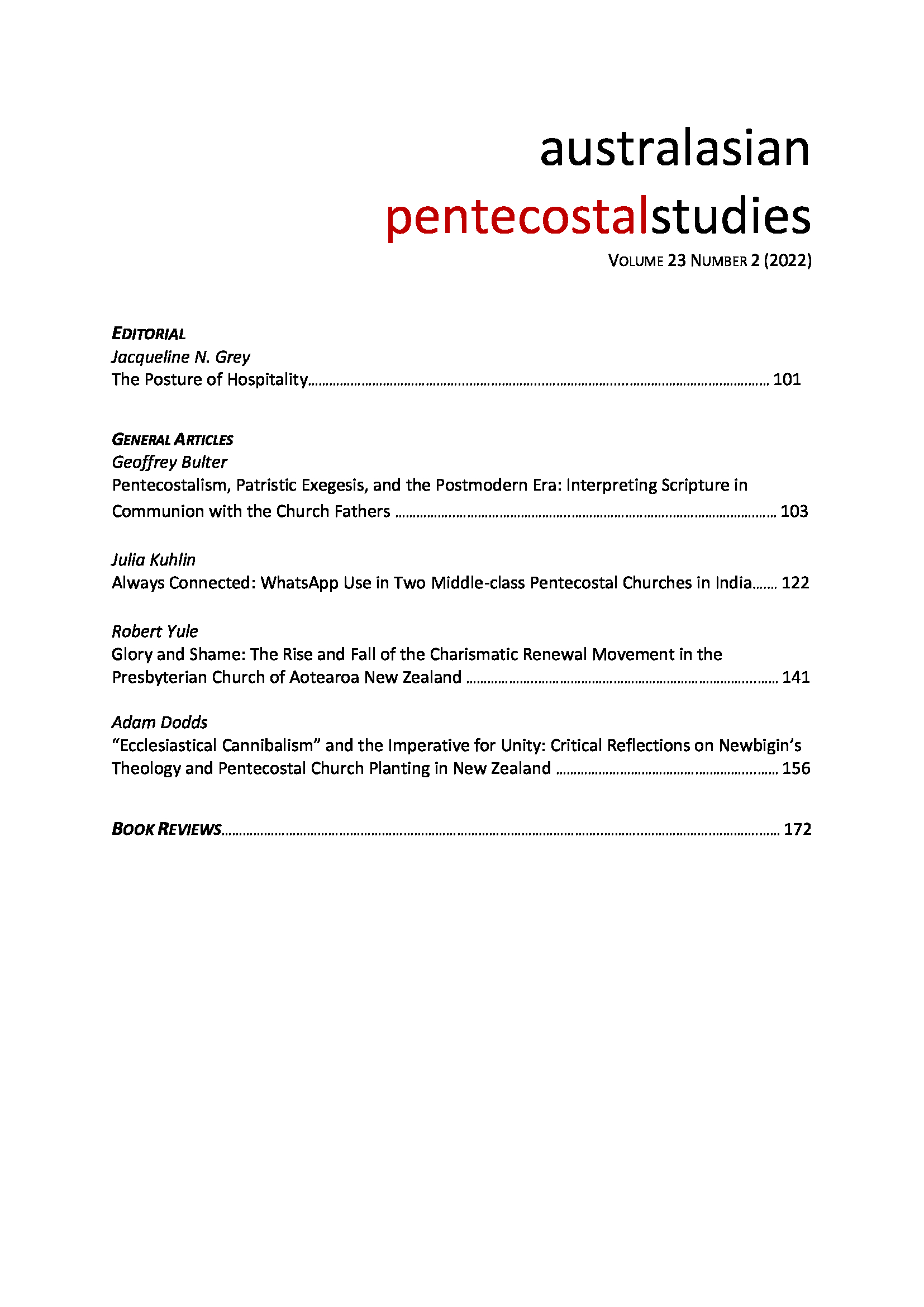Always connected
WhatsApp use in two middle-class Pentecostal churches in India
Abstract
This article explores the activity in two Indian Pentecostal churches’ WhatsApp-groups using Christine Hine’s E3-model and shows in various ways how the activities in the groups are embedded, embodied, and everyday. A central finding is that what take place in these chat-groups is closely related to both offline congregational life and church members’ everyday lives. The WhatsApp-groups extended what the church was and meant for the members into an online space. Further, the article points to that, by means of these WhatsApp-groups, the churches have come closer to church members immediate personal spaces and moved, so to say, into their back pockets, resulting in a blurring of boundaries between congregational life and the everyday lives of members. The study is based on six months of fieldwork in two churches in the North Indian city Gurugram, including participation in the churches’ WhatsApp groups.
Keywords: India, WhatsApp, online-offline, digital religion, everyday religion
Downloads
Published
How to Cite
Issue
Section
License
Authors who publish with this journal agree to the following terms:
- Authors retain copyright and grant the journal right of first publication with the work simultaneously licensed under a Creative Commons Attribution License that allows others to share the work with an acknowledgement of the work's authorship and initial publication in this journal
- Authors are able to enter into separate, additional contractual arrangements for the non-exclusive distribution of the journal's published version of the work (e.g., post it to an institutional repository or publish it in a book), with an acknowledgement of its initial publication in this journal.
- Authors are permitted and encouraged to post their work online (e.g., in institutional repositories or on their website) prior to and during the submission process, as it can lead to productive exchanges, as well as earlier and greater citation of published work (See The Effect of Open Access).


